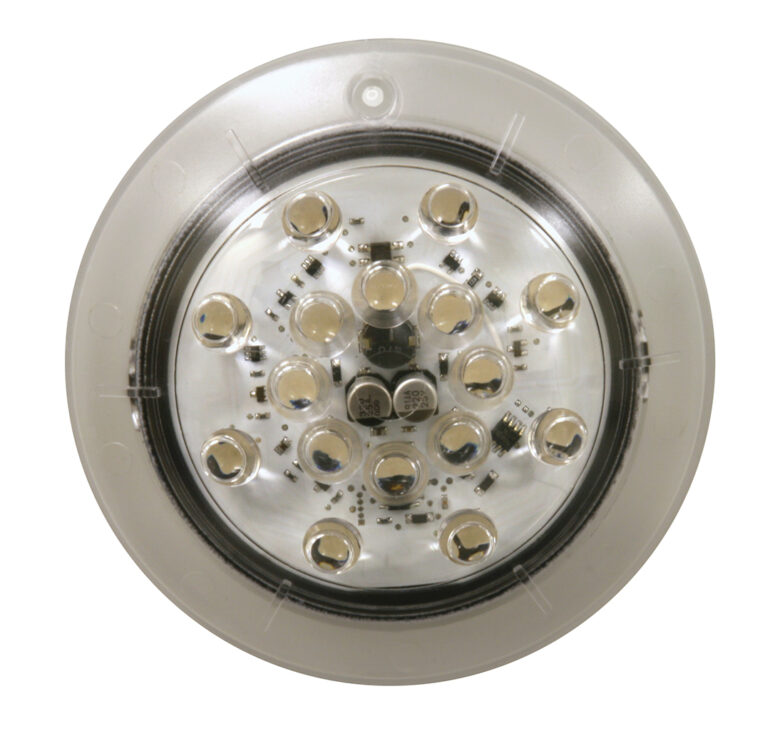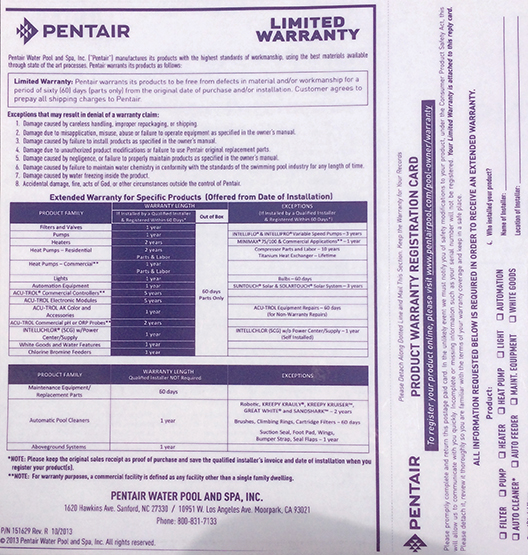Avoid Talking Yourself Out of a Sale
I can hear it now. “C’mon, man,” you say. “What’s this all about? Talking yourself out of a sale? Really?”
You may be saying to yourself, “I have enough problems talking myself into a sale. Now I have to worry about this too? You can’t be serious.” Au contraire, my pool and spa selling friend: I am deadly serious. As much as I find myself training salespeople about how to talk themselves into a sale, I often find I should also be training them about how to avoid talking themselves out of a sale. This is not a play on words, folks. It’s the real deal.
Sometimes we simply talk too much or say the wrong things. Sometimes we say the right things the wrong way, or at the wrong time and — poof! — it’s over. Sometimes it happens that quickly. Other times, they’ve had enough and we hear the words all salespeople dread: “We’ll think it over.” Immediately after that, we find ourselves back in the car wondering what just happened and why.
Words and the salesperson
Words are the lifeblood of sales, and some of us need a transfusion — fast. Words are the stock and trade of the salesperson. We live and die by the words we speak in each and every sales situation.
Let’s take a look at some of the challenges we face with the words we choose.
Eliminate ‘sales speak’
I’m sure many have read a few of the better-selling sales books over the years. Some of these have become so popular that the ‘sales speak’ they recommended has become part of the sales lexicon.
Here are a few examples: “What will it take for you to make a decision tonight?” The operative word here is decision. The books say this is a highly motivating word that will propel your prospects into action. And it works — they propel you right out the door! Here are more: “What do I have to offer you to sell this pool or spa tonight?” “If I take 10 percent (or whatever) off the price, will you go ahead right now?”
Sales speak not only clearly identifies you as a no-talent, unsophisticated, wannabe salesperson, but it is also demeaning to your prospect. As soon as you regurgitate one of these, they will almost always turn off to you, your company and your products.
Stop using industry jargon
Your prospects are not authorities on pools, spas or services; that’s your job. Since they are not experts, be very cautious of using industry words. For instance, even terms like anti-vortex, main drain, skimmer, weir, vacuum breaker and variable speed may be sales killers — unless you clearly explain what they are and how they provide value to them. If they do not understand the terms you use, they may be too embarrassed to ask what you’re talking about. If they allow you to ramble on without a clear understanding, they will only become more confused. Can you guess what they’ll likely tell you next? That’s right: “We’ll think it over.”
Stop talking too much
Many salespeople still mistakenly believe we make our living by talking. In fact, some of us believe we are so good at conversation that we fall in love with the sound of our own voice. Once we start talking, we can’t seem to stop. After a short while, your prospects may not want to hear you at all.
Listening to someone who loves his or her own voice is a frustrating experience. It is annoying and it’s aggravating. As you should be aware, hearing is not the same as listening. Talk less and listen more. Ask great extraction questions (questions that will get information advantageous to your sale) and listen closely to the responses.
Stop selling at them
(rather than to them)
You may have a presentation planned and practiced that you think is just wonderful. You want to complete it no matter what may threaten to interfere with your performance — and that includes their attempt to interrupt you to make a purchase prior to the end of your monologue.
I recall sitting in on a presentation with a new salesperson who was making a presentation he had practiced diligently. He completely ignored the prospect when he said, “OK, how do we get started?” I allowed him to continue, because I didn’t want to embarrass him. The prospect later developed some questions with which he felt the need to ponder, and we walked out of the office without a decision. I learned my lesson.
Stop telling them what’s important to you
Another way of talking yourself out of a sale is by telling a prospect what you believe should be important to them. This common, arrogant thought process has destroyed many sales. The differences between an acrylic versus a rotomolded spa may be of great interest to you, but what if they are of little or no interest to your prospects?
If they don’t care, neither should you. I am not saying you shouldn’t mention areas where your company excels or is different — but do not dwell on these issues or incessantly provide additional information on topics about which they have no interest. If you do, you most likely won’t be receiving a positive decision.
How will you know what is most important to them? Ask!
Stop providing the wrong
presentation
It is not just long-winded presentations that may talk you out of a sale: Your presentation may be so short and unpracticed that it lacks substance and therefore creates little interest. This is the hallmark of salespeople who conduct presentations the way they did when we were in a seller’s market — but we are currently in a strong buyer’s market. The idiom ‘sell them now and educate later’ almost never applies in a buyer’s market.
Sales presentations should be planned and practiced, yet flexible enough to redirect toward the specific interests of a prospect when necessary. How do you know what is the right presentation and what’s important to them? Ask!
Stop being boring
Even if you plan and practice your presentation, you’ll lose them if you don’t keep them interested and entertained. Did you get that word — “entertained”? It’s important. Think of your presentation as a performance, because entertainment is a necessary component to a professionally delivered presentation.
Bore them and they will shut down. When they shut down it’s, “We’ll think it over.” Many salespeople who hear that phrase will inaccurately blame the prospects, competition, price or whatever excuse seems convenient for their lack of success. Don’t allow yourself to become boring.
Stop closing
Remember “Always Be Closing”? Many have read the sales books that provide us with 1,001 closes — just to make sure we get it right. As a result, salespeople may attempt closing too often or before the prospects are ready to make an educated decision. When these closing onslaughts take place, prospects may become defensive and even antagonistic.
Prior to asking a closing question, provide enough quality information for them to make an informed decision. Asking a closing question before sufficient information is offered places an enormous amount of pressure on the prospect. They will frequently become uncomfortable and unsettled. They will most often refuse to make a decision, saying something like, “We have other salespeople to talk to first.” Naturally, we will often blame them for their indecision or for being cheap, yet the problem is actually ours.
Stop offering features without benefits
Confusing features with benefits is a very common way salespeople talk themselves out of a sale. A feature is what a product is. A benefit is what it does for them. That’s a big difference. If you check out many of the product brochures you use, you may find them features-saturated and benefits-dry. Features will be meaningless to your prospects until they clearly understand what each feature will accomplish for them.
Stop offering the wrong benefits
Benefits must be specific to the prospect. For example, you may determine a certain feature offers as many as 10 benefits; that’s a lot. They may seem impressive to you, but you are not the one who needs to be impressed. Since it’s all about your prospects, offer them the right benefits.
If you mention all 10 benefits and they are interested in only two, you may actually confuse or bore them. This is especially true if the two in which they have an interest are the last two you reference. They may be bored or asleep by the time you reach those explanations. How do you know what the right benefits are? Ask!
Stop and think
Your prospects are just like you: They are good people who want the best for their families. They want to be comfortable with their decisions and feel they are receiving value for their investment.
Value does not only mean dollars spent, but it also means peace of mind. It means they know they are purchasing from someone who cares about them and has their best interest at heart. Given the option, they will choose the salesperson and company they believe to be the most knowledgeable, informed and honorable in their marketplace.
They will choose to work with experts. They are no longer willing to endure pushy salespeople who continually bombard them with mindless closes or mundane information in which they have no interest. They are no longer willing to put up with people who talk themselves out of a sale. They want it to be all about them. Offer them the option. Make it all about them.






